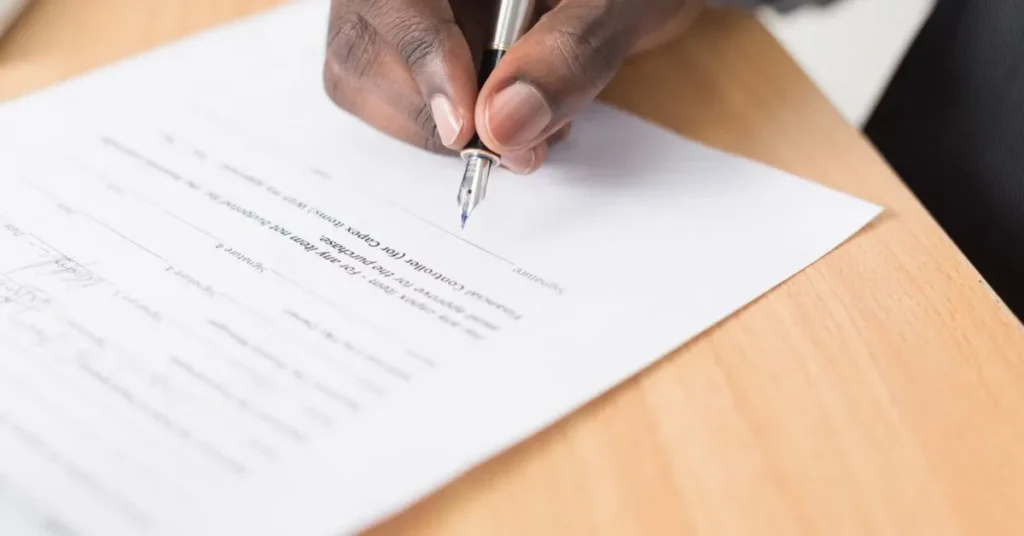Navigating a personal injury claim can be a daunting endeavor. Whether you’ve been involved in a car accident, slipped in a store, or faced any mishap due to another’s negligence, understanding the right steps is crucial. Making informed decisions not only ensures your rights are protected but also maximizes your chances of receiving fair compensation. Here’s a breakdown of essential dos and don’ts to guide you through this process.
Contents
Do: Hire Professional Legal Assistance
Hiring a professional attorney who specializes in personal injury cases can make a significant difference in the outcome of your claim. An experienced personal injury lawyer will understand the nuances of the law, helping you build a strong case and avoid common pitfalls. They can also handle all communications with the insurance company, ensuring that your rights are protected and that you receive a fair settlement. Additionally, a lawyer can accurately calculate the full extent of your damages, including future medical expenses and non-economic losses like pain and suffering, to ensure you are fully compensated for your injuries.
Do: Seek Immediate Medical Attention
Your health should always be the top priority. After sustaining an injury, even if it seems minor, seek medical attention promptly. Some injuries might not manifest symptoms immediately but can have long-term consequences if left untreated. By visiting a healthcare professional, you not only ensure your well-being but also obtain medical records that serve as crucial evidence. These records can directly link your injuries to the incident, strengthening your claim.
- Request a copy of your medical records after each visit. This documentation not only tracks your recovery but also provides a timeline that can be critical in establishing the cause and impact of your injuries.
- Follow all prescribed treatments and attend follow-up appointments. Adhering to medical advice not only aids your recovery but also demonstrates that you are taking your injury seriously, which can be beneficial in negotiations.
Don’t: Admit Fault or Apologize
In the aftermath of an accident, it’s natural to feel shaken and even apologetic, especially if others are involved. However, avoid admitting fault or offering apologies, even casually. Such statements can be misconstrued and used against you during claim negotiations. Insurance companies and opposing parties might leverage your words to diminish or deny your compensation. Stick to factual statements and let the investigation determine liability.
- Politely decline to discuss the incident with the other party’s insurance company without legal advice. Insurance adjusters might seem friendly, but their goal is often to gather information that can minimize your claim.
- Be cautious about what you post on social media after the incident. Even an innocent update can be used against you if it contradicts the severity of your injuries or suggests you are admitting fault.
- If law enforcement is involved, provide clear, factual answers to their questions, but avoid speculating or offering opinions about the cause of the accident. The police report will be a key document in your claim, and it’s important that it accurately reflects the facts.
Do: Document Everything
Thorough documentation is the backbone of a successful personal injury claim. Start by photographing the scene, your injuries, and any property damage. Gather contact information from witnesses and note their accounts of the incident. Maintain a detailed record of all medical treatments, expenses, and any correspondence related to the accident. Keep a journal detailing how the injury impacts your daily life. This comprehensive evidence can significantly bolster your claim’s credibility.
Don’t: Settle Too Quickly
Facing mounting medical bills and potential loss of income can tempt you to accept the first settlement offer that comes your way. However, initial offers from insurance companies often undervalue the true extent of your damages. Before agreeing to any settlement, consult with a personal injury attorney who can assess the fairness of the offer. Remember, once you accept a settlement, you typically waive your right to pursue further compensation, even if unforeseen complications arise later.
- Take the time to calculate the full extent of your damages, including future medical costs and lost earning potential. A comprehensive assessment ensures you don’t settle for less than you deserve.
- Consider the long-term impact of your injuries on your quality of life. Some injuries may require ongoing treatment or result in permanent limitations, which should be factored into your compensation.
- Be wary of pressure tactics from insurance companies urging you to settle quickly. They might frame it as a benefit to you, but in reality, they are looking to close the claim for as little as possible. Consulting with a lawyer can help you recognize and resist these tactics.
It’s tempting to share your experiences on social media or discuss your case with friends and family. However, this can be detrimental to your claim. Insurance companies and opposing legal teams often monitor social media for information that can be used against you.
Even seemingly innocent posts or comments can be taken out of context and harm your case. It’s best to keep details of your injury, recovery, and legal proceedings private until your claim is fully resolved. When in doubt, consult with your attorney before sharing any information.
Do: Stay Consistent with Your Treatment Plan
Following your healthcare provider’s treatment plan is crucial for both your recovery and your personal injury claim. Skipping appointments, delaying treatments, or not following medical advice can not only prolong your recovery but also give the insurance company reason to argue that your injuries aren’t as severe as claimed.
Keep detailed records of your treatments, attend all follow-up appointments, and adhere strictly to your prescribed plan. Consistency in your medical care demonstrates the seriousness of your injuries and helps to establish a clear, documented link between the accident and your ongoing medical needs.

Handling a personal injury claim requires diligence, patience, and informed decision-making. By seeking immediate medical attention, avoiding premature admissions of fault, meticulously documenting all relevant details, and resisting hasty settlements, you position yourself favorably in the claims process. Remember, consulting with legal professionals can provide invaluable guidance tailored to your situation. Advocate for your rights and ensure you take the best steps toward rightful compensation.

